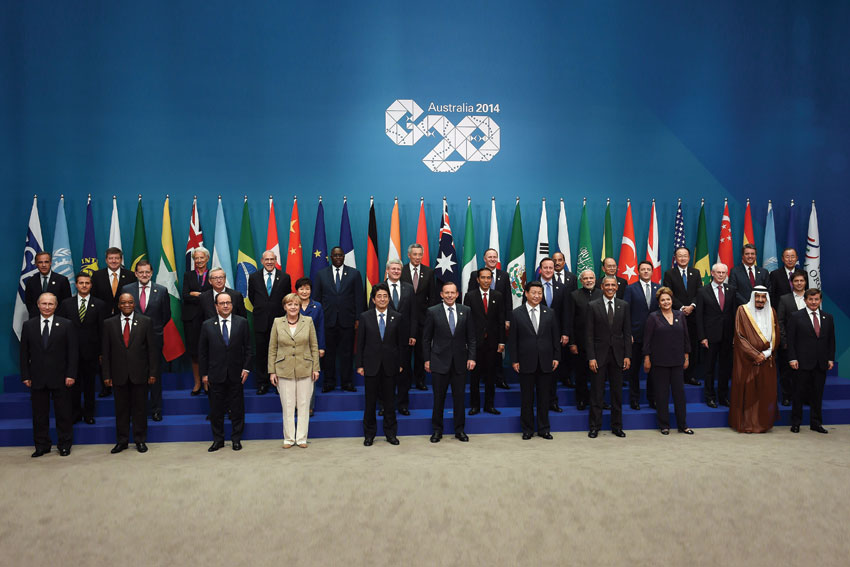During its G20 presidency, Turkey has put inequality, trade, SMEs, climate change, and the challenges of low-income developing countries as top priorities

Political uncertainty and wider regional tensions have taken their toll on Turkey but the country’s sustained and resilient economy points to the possibility of a more stable and prosperous future.
Despite ongoing domestic and international challenges, Turkey has placed inclusive domestic and international growth at the heart of its G20 presidency, giving more prominence to engagement groups and ensuring that the needs of low-income developing countries (LIDCs) are thoroughly considered.
“G20 members account for a substantial part of global growth, output, trade and population,” explains Cavit Dağdaş, Turkey’s G20 Finance Deputy. “Decisions taken by the G20 have an impact on all countries, regardless of their size. Hence, for a healthy and balanced global economy, we need to take into consideration the concerns of other economies, in particular LIDCs, and put thought into how the G20 can address them.”
Turkey’s own political and economic direction remained unclear, with no government being formed following general elections in June. But on November 1, the people were asked to vote again and decided to reinstall the incumbent AKP party. With the economy posting growth figures of more than 3%, many observers believe that the return of political stability could put the country on a renewed path to prosperity.
Attracting foreign direct investment (FDI) remains key as does boosting its exports and Nihat Zeybekci, Turkey’s Minister of Economy, says the country has more potential. Turkey’s Vision 2023 includes ambitious targets for increasing exports to $500 billion and Mr. Zeybekci points to the past 12 years of growth – at an average rate of more than 5% – as proof that such targets are achievable.
“If this increase continues at the same level, we will reach $500 billion of exports,” he says. To power further prosperity, Mr. Zeybekci wants Turkey to bolster its relationships not just with the EU but countries across Central Asia, the Caucasus, the Middle East, the Gulf, Northern Africa and the Balkans. Indeed, while the country’s geographical location poses political challenges it also offers considerable export opportunities.
“From a logistical perspective, Turkey has great advantages to enable it to control the chains of consumption and distribution,” Mr. Zeybekci says. “We can be active and efficient in determining the consumption habits of our neighboring countries and sphere of influence. Moreover, we can go into partnerships with the sectors and firms in these countries. We can establish joint ventures. We can take action together and seek new opportunities.”
There are also numerous domestic opportunities and supporting the creation of small- and medium-sized enterprises (SMEs) has become central to Turkey’s economic future.
“They are very important,” says Ayşe Sinirlioğlu Turkey’s G20 Ambassador. “First of all, SMEs are the biggest employment generators and in Turkey, they are responsible for 77% of employment. Within the G20 there is special attention from all countries – it’s a shared goal – to pay attention to SMEs. SMEs were badly affected by the financial crisis, specifically with respect to accessing finance.”
Turkey is now refocusing its attention on this sector and Ms. Sinirlioğlu says the country is exploring how it can provide alternative access to funding. Meanwhile Turkey’s financial institutions are trying to provide solutions, not just for SMEs but also for consumers, with improved pension provisions, better investment opportunities and varied insurance policies. Concerns remain that US interest rate changes could jolt both Turkey and the region but Prof. Dr. Turalay Kenç, Deputy Governor for the Central Bank of Turkey, says the country is ready.
“We have experience so we are well prepared this time; we accumulated reserves and prepared ourselves for an eventual Fed normalization,” he says, adding that policies around “prudential borrowing, improving the choice between core and non-core liabilities, improving maturities of FX liabilities of Turkish banks and improving an external safety net” have all been implemented.
Obstacles to growth remain but Turkey’s presidency of the G20 is providing an opportunity to put its concerns around inclusive prosperity on the global stage. Just as importantly, it is also enabling international partners, who have contributed more than $150 billion of FDI over the past decade, to readjust their focus and consider Turkey’s potential in a new light.
0 COMMENTS